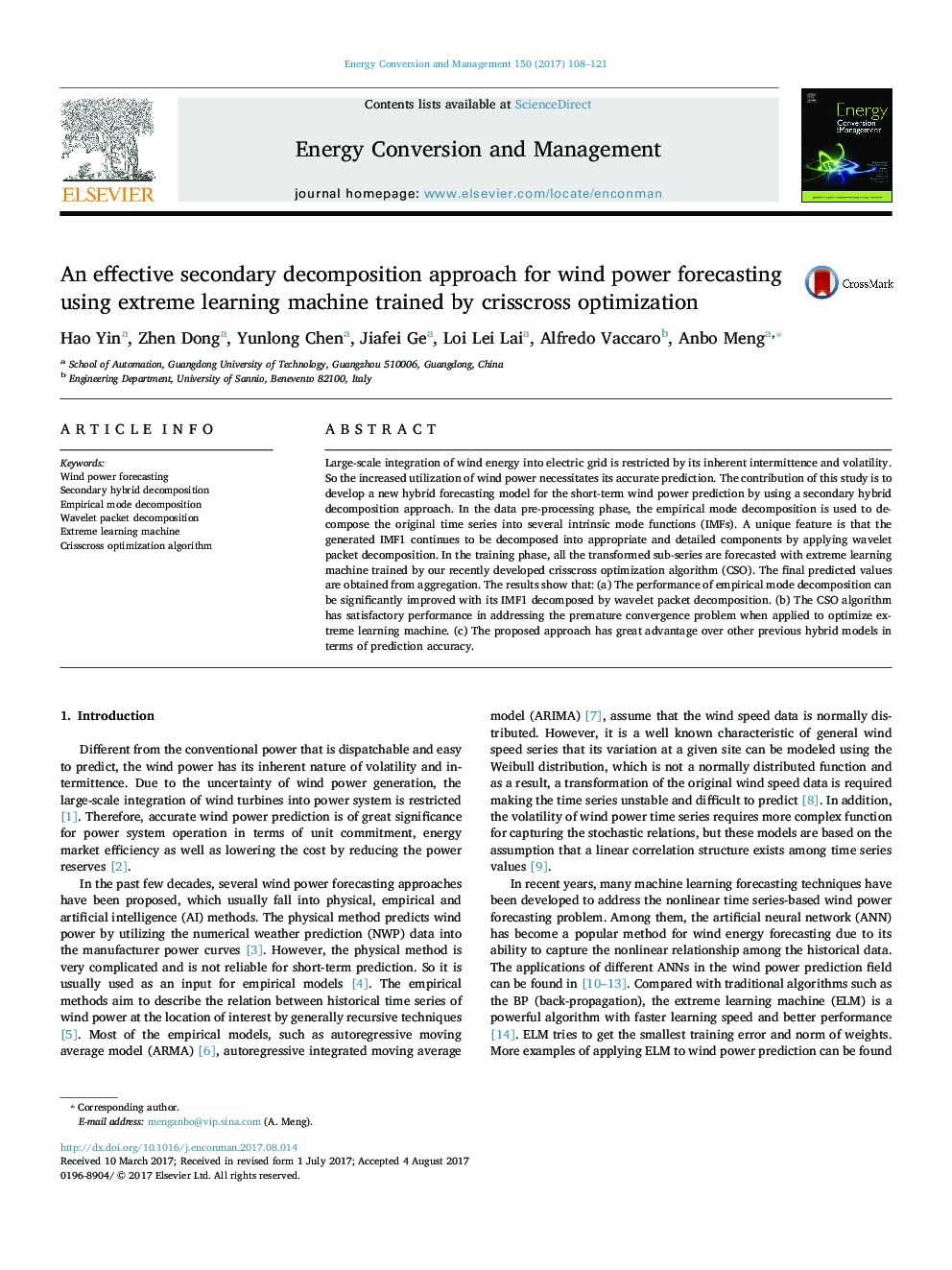| Article ID | Journal | Published Year | Pages | File Type |
|---|---|---|---|---|
| 5012248 | Energy Conversion and Management | 2017 | 14 Pages |
Abstract
Large-scale integration of wind energy into electric grid is restricted by its inherent intermittence and volatility. So the increased utilization of wind power necessitates its accurate prediction. The contribution of this study is to develop a new hybrid forecasting model for the short-term wind power prediction by using a secondary hybrid decomposition approach. In the data pre-processing phase, the empirical mode decomposition is used to decompose the original time series into several intrinsic mode functions (IMFs). A unique feature is that the generated IMF1 continues to be decomposed into appropriate and detailed components by applying wavelet packet decomposition. In the training phase, all the transformed sub-series are forecasted with extreme learning machine trained by our recently developed crisscross optimization algorithm (CSO). The final predicted values are obtained from aggregation. The results show that: (a) The performance of empirical mode decomposition can be significantly improved with its IMF1 decomposed by wavelet packet decomposition. (b) The CSO algorithm has satisfactory performance in addressing the premature convergence problem when applied to optimize extreme learning machine. (c) The proposed approach has great advantage over other previous hybrid models in terms of prediction accuracy.
Keywords
Related Topics
Physical Sciences and Engineering
Energy
Energy (General)
Authors
Hao Yin, Zhen Dong, Yunlong Chen, Jiafei Ge, Loi Lei Lai, Alfredo Vaccaro, Anbo Meng,
